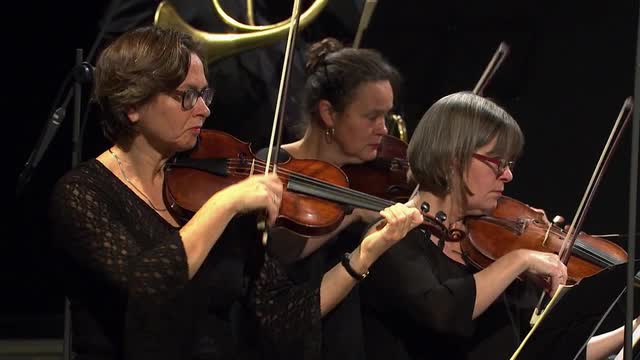Born in Biberach in 1752, the son of a Kantor, Justin Heinrich Knecht was first taught by his father and continued his education in his home town, with lessons in organ, keyboard, violin and singing. He received early encouragement from Christoph Martin Wieland, born near Biberach and intermittently resident there until settling in Weimar, where Goethe was coming to prominence. Like Wieland, Knecht was influenced by the artistic tastes of Graf Stadion zu Warthausen-Biberach, at whose court he broadened his musical knowledge, getting to know the work of leading contemporary composers. At Esslingen, where Knecht continued his studies, he met Christian Friedrich Daniel Schubart, whose literary and musical tastes had a strong influence on him, introducing him, in particular, to the work of Klopstock and the cultural interests of the court in Württemberg, where Schubart was to be imprisoned for ten years. Knecht subsequently returned to Biberach, taking up duties as a teacher at the Lutheran School there and in the church. He was able to organise concerts in Biberach and to write and compose for the theatre, and contribute to educational literature with books on music theory. In 1792 he resigned in order to devote himself to work as an organist and director of music at the shared Church of St Martin. In 1806 he left Biberach, hoping to find a position at the court in Suttgart as Court Composer or Court Kapellmeister. His efforts, however, eventually brought him the post of director of the orchestra, which he abandoned after eighteen months, returning to his employment as organist at Biberach, and remaining there, active in the musical life of the city, until his death in 1817.
Knecht’s activities as teacher, church musician and man of the theatre are reflected in his compositions and writings. For the theatre, principally in Biberach, he wrote operas, Singspiel and incidental music, for the church settings of psalms and canticles, music and pedagogical works for the organ, chamber music and works for keyboard. His orchestral compositions include Le Portrait musical de la Nature ou Grande Simphonie. This last was written in 1784-1785, a pastoral symphony that, in the events it depicts, anticipates Beethoven’s Symphony No 6, written 24 years later.
| Title | |
| BEETHOVEN, L. van: Beethoven and His Contemporaries, Vol. 2: Concert 4 (Berlin Akademie fur Alte Musik, Forck) | |

|
BEETHOVEN, L. van: Beethoven and His Contemporaries, Vol. 2: Concert 4 (Berlin Akademie fur Alte Musik, Forck)
Composers:
Beethoven, Ludwig van -- Holzbauer, Ignaz -- Knecht, Justin Heinrich
Artists:
Berlin Akademie fur Alte Musik -- Forck, Bernhard
Label/Producer: Naxos |
